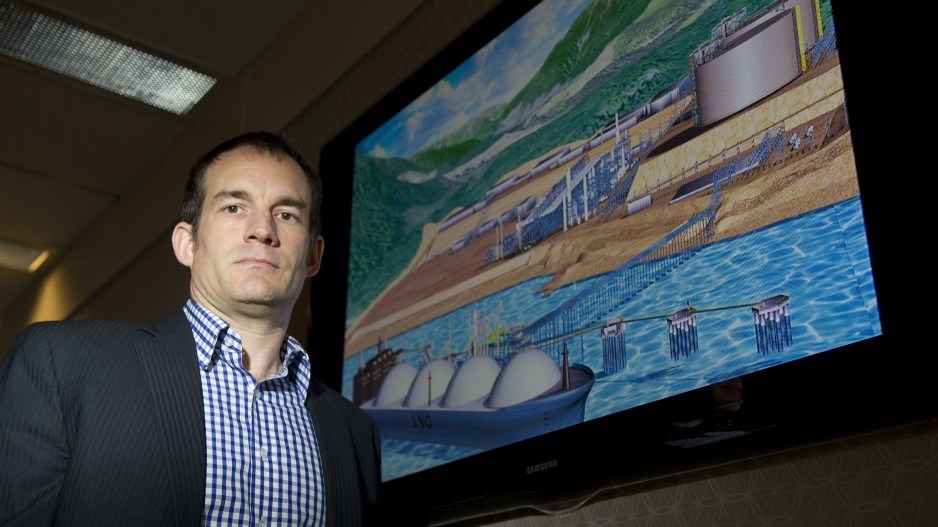While a new Business Council of British Columbia (BCBC) policy paper supports two of B.C.'s most high-profile economic opportunities – natural gas industry expansion and new crude oil pipeline construction – it says both need help to ensure "continued energy prosperity" for the province.
Among a sweeping set of recommendations in its paper, the BCBC offers two critical steps: devoting more staff to the energy file to avoid bureaucratic backlogs and rewriting B.C.'s climate targets to reflect the realities of increased fossil fuel development.
Tom Syer, BCBC's vice-president of policy and communications, called "Building New Energy Advantages for B.C.: Understanding and Benefitting from the Transformation of B.C.'s Energy Marketplaces" a "soft push" to accelerate the work required to succeed in the energy arena.
"There's a lot at stake," said Syer. "We need to ensure we both understand and capture this opportunity. This paper hopes to point out going in."
One way to accelerate the work is to put more manpower on the job. Since the provincial election in May, the B.C. government has launched a new Ministry of Natural Gas Development, led by veteran cabinet minister Rich Coleman, to promote potential liquefied natural gas exports and created a bi-provincial committee with Alberta to develop an adequate environmental and economic arrangement between the two provinces for new pipeline construction.
Currently, B.C. is the terminus for two possible pipeline ventures that originate in Alberta: Enbridge's (TSX:ENB) Northern Gateway project and Kinder Morgan's (NYSE:KMP) twinned Trans Mountain pipeline.
Syer applauded those initial steps taken by the government, but stressed the need to have more people working on the proposals.
"The government has been making changes," he said, "but we need to make sure we have enough [public] servants to do this. We like the team we have; there just isn't enough of them. We need many."
As for an expanding natural gas sector, the BCBC is a strong supporter of the province's burgeoning LNG export industry. But the group doesn't just want to see B.C.'s natural gas shipped overseas. It also wants the province to use more of its natural gas to generate power for domestic use.
That aim is the root of a more prickly recommendation in the report: for Victoria to review the Clean Energy Act and rewrite its targets to reflect what would be an increase in fossil fuel use.
The Clean Energy Act stipulates that 93% of the electricity produced in the province must come from clean sources such as hydroelectric power, while only 7% can come from fossil fuels. The act also requires B.C. to reduce its greenhouse gas emissions by 33% below 2007 levels by 2020 and by 80% below 2007 levels by 2050.
But building more pipelines and burning more natural gas will put those targets out of reach.
"The climate change piece – we can't hit those targets," said Syer.
"We need to update them."
Rethinking B.C.'s climate ambitions, however realistic that might be if the pipeline projects are built and the natural gas industry is expanded, likely won't win the government the support of many British Columbians.
For instance, in a new poll released by Tides Canada, most British Columbians believe it is important to minimize greenhouse gas emissions in the development of the LNG industry.
"The perception of British Columbians is to strike a balance between the environment and economic benefits. So what will it take to deliver on that?" said Dan Woynillowicz, policy director of Clean Energy Canada at Tides Canada.
"British Columbians want clean LNG, but they also want the jobs and the money. We need to enact policies that ensure British Columbians get what they want from this. And looking at this issue – the carbon issue is our main concern."
The findings of the Tides Canada survey echo the results of a previous Insights West poll, commissioned by Business in Vancouver and JuneWarren-Nickel's Energy Group in September, on the topic of hydraulic fracturing.
Hydraulic fracturing, or fracking, is a method of natural gas extraction generally considered harmful to the environment and routinely opposed by environmental groups. But if B.C. plans to access more of its natural gas reserves to supply an expanding natural gas sector, fracking will be used. According to the poll, only 25% of British Columbians support fracking, while nearly 50% oppose it. About 50% of British Columbians, however, support the development and exportation of liquefied natural gas.
"In B.C., even though the election was won by the Liberals, you do have a lot of people who are more of a centre-left mindset, who are more environmentally friendly," said Mario Canseco, vice-president of public affairs at Insights West.
"In B.C. we are of two minds. We want the jobs and we want the foreign investment, but when you start talking about some of the setbacks, in particular the environment, that's when people go 'I'm not really sure this is the way we should be going.'" •




